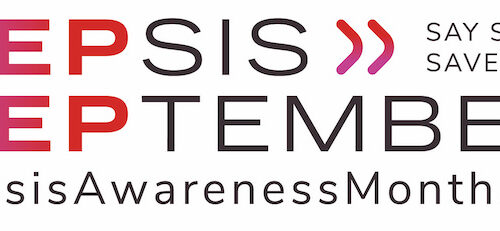
Toxic Positivity: You Don’t Have to Be Happy All the Time
We’ve all heard some of these comments before:
- Think happy thoughts!
- Turn that frown upside down!
- Think positive.
- Don’t Worry Be Happy.
- Fake it ‘til you make it.
- Stop focusing on the negative!
- “You would look so much more attractive” if you could smile more
You know what? No one can be happy or positive all the time. This can lead to toxic positivity. Unpleasant things do happen, and not thinking about them doesn’t mean they didn’t happen, aren’t happening, and won’t happen.
 I admit, I laughed when I read that there was an official National Grouch Day on October 15th. I looked it up and was pleasantly surprised by what I read: “…this day teaches us that it’s good to spend time processing our negative emotions.” And THAT is what is important.
I admit, I laughed when I read that there was an official National Grouch Day on October 15th. I looked it up and was pleasantly surprised by what I read: “…this day teaches us that it’s good to spend time processing our negative emotions.” And THAT is what is important.
Pushing yourself to shove negative feelings away can lead to toxic positivity. And this can lead to mental health issues and even physical ones. Toxic positivity doesn’t allow you to feel emotions like sadness, anger, frustration, or grief. You’re told to “buck up”, and hide your suffering.
What is toxic positivity?
According to Psychology Today, toxic positivity is “the act of avoiding, suppressing, or rejecting negative emotions or experiences.” This means you’re denying what you’re feeling. You’re not allowing yourself to process negative emotions.
Bookstores and internet sites abound with positivity messages and self-help programs to become a better person through happiness. They’re not necessarily bad – but they can lead people to believe that being happy is the only way to be. And it’s not.
Toxic positivity means accepting things that can harm your sense of self. The Psychology Today article provides some great examples, such as being told you should be grateful for a job, even if you hate it. Or you should be thankful that you have so much in your life when all you want to do at that moment is complain a bit about how tough a day you’re having.
The idea that you must always be happy can cause you to feel guilty when you get annoyed or upset over something that bothered you. You might bottle up your emotions, only to have them boil over later or cause a physical illness because you’re so stressed.
Stress can cause many things, including:
- Headaches
- Hypertension
- Muscle tension and pain
- Chest pain
- Upset stomach
- Insomnia
- Fatigue
- Memory problems
Stress can even affect your immune system. According to this article, published in 2019, stress can:
- Cause poor or slow wound healing after surgery or injury
- Increase your risk of catching an infection illness, like the flu or a cold
- Contribute to developing chronic illnesses like type 2 diabetes
There are different types of stress
First, there is the good stress, the kind that keeps us safe. Stress can trigger a flight-or-flight response. In days past, sensing that a lion or some other dangerous creature was near would trigger our stress sensors and send us running so we wouldn’t be caught. Today, good stress could be following your gut if you’re getting a bad feeling about a situation, completing a project by an important deadline, or asking out that special person you recently met. Stress can heighten our senses, making us really feel what is going on around us.
But then there’s bad stress. That is the stress that can cause us to react badly or get trapped into a cycle of poor coping skills or rumination. It can be acute, repeated, or chronic.
Acute
Acute stress is something that happens once and can cause physical symptoms like a racing heart, shaky hands, or even having to run to the bathroom. Anything can cause it, from a near accident to being called unexpectedly into your boss’s office. Although acute stress may be a one-time occurrence, it doesn’t mean you can just leave it behind. It’s not unusual to frequently replay an angry conversation you had with a family member or to relive almost being hit by a car. But talking about it, thinking about ways you may have handled it better (if you think you could), and even writing about it in a journal, are ways you can help process your feelings. Evidence shows that by acknowledging the negative feeling, emotion, or event, you can process future stressors in a healthier fashion.
Episodic
Repeated, or episodic, stresses are those stresses that occur more than once. They don’t have to be big or catastrophic, but they’re consistent. Examples could include people who are very hard on themselves and don’t accept that they may get a B on an exam – they only are happy with an A. Every exam, every result is stressful. Knowing that these stresses occur, the best way to handle them is before the events. Just recognizing that this happens is a great first step. Speaking with a counselor or therapist can help you put things in perspective and develop coping mechanisms to put into place when needed.
Chronic
Chronic stress is stress that is constant and unrelenting. Someone who lives in an abusive situation lives with chronic stress. Someone who works in a job that is too demanding with an unsupportive boss providing non-specific negative feedback can cause the employee to feel a constant threat of job loss. This type of chronic stress is hard on your body because there is no break. Sometimes this can lead to thoughts of depression or even suicide. Even if there are calm periods, you will be on alert for the next event.
It’s OK to be upset sometimes
 Of course, we don’t want people to be negative or angry all the time. That isn’t healthy, either. But as with almost everything in life, moderation is the key.
Of course, we don’t want people to be negative or angry all the time. That isn’t healthy, either. But as with almost everything in life, moderation is the key.
We can be angry when we hear about someone being robbed or assaulted. That’s a normal reaction. We can feel disappointed because something caused you to miss an event you were looking forward to. We can feel frustration because someone we depended on failed to deliver on an important promise. There is nothing wrong with that. It’s what we DO with that anger that matters.
Managing the negative emotions
If you’re experiencing a negative emotion, recognize and acknowledge what you’re feeling. If you’re angry or frustrated about something, acknowledge that. Don’t deny it.
Identify what it is that is causing the negative emotion if you can. Without a clear understanding of negative emotions, we may fail to recognize or appreciate positive emotions as well. Expand your vocabulary of emotions so you can more successfully identify and learn from them.
Recognize how the negative emotion makes you feel and affects you. Permit yourself to feel that way. Your feelings, positive or negative, are legitimate. Then, get curious. “It’s interesting that my heart rate rises and my hands sweat when I have to interact with this person.” If you look view the situation with wonder and curiosity with the goal of learning, that can sometimes allow enough separation to allow you a new perspective.
Set a time limit for your anger or frustration or sadness if you can. When I am disappointed or frustrated because something didn’t work out like I had hoped or anticipated, I start some “intentional wallow time”, as I call it. It may be a few hours; it may be a few days. But by allowing myself that time, my emotions are more likely to settle down quickly than when I try to deny them or suppress them. Others who are stressed find other outlets, like watching a tear-jerker movie that allows them to cry. This helps them release their negative emotions.
The final word? Feel free to smile when you can and WANT to. Don’t force it. Don’t fall into the trap of toxic positivity. Work to get curious about the negative emotions and the negative feelings they may generate; work through them. And then you can move on.
Disclaimer
The information in this blog is provided as an information and educational resource only. It is not to be used or relied upon for diagnostic or treatment purposes.
The blog does not represent or guarantee that its information is applicable to a specific patient’s care or treatment. The educational content in this blog is not to be interpreted as medical advice from any of the authors or contributors. It is not to be used as a substitute for treatment or advice from a practicing physician or other healthcare professional.




110 Comments
Pingback:
Pingback:
Pingback:
Pingback:
Pingback:
Pingback:
Pingback:
Pingback:
Pingback:
Pingback:
Pingback:
Pingback:
Pingback:
Pingback:
Pingback:
Pingback:
Pingback:
Pingback:
Pingback:
Pingback:
Pingback:
Pingback:
Pingback:
Pingback:
Pingback:
Pingback:
Pingback:
Pingback:
Pingback:
Pingback:
Pingback:
Pingback:
Pingback:
Pingback:
Pingback:
Pingback:
Pingback:
Pingback:
Pingback:
Pingback:
Pingback:
Pingback:
Pingback:
Pingback:
Pingback:
Pingback:
Pingback:
Pingback:
Pingback:
Pingback:
Pingback:
Pingback:
Pingback:
Pingback:
Pingback:
Pingback:
Pingback:
Pingback:
Pingback:
Pingback:
Pingback:
Pingback:
Pingback:
Pingback:
Pingback:
Pingback:
Pingback:
Pingback:
Pingback:
Pingback:
Pingback:
Pingback:
Pingback:
Pingback:
Pingback:
Pingback:
Pingback:
Pingback:
Pingback:
Pingback:
Pingback:
Pingback:
Pingback:
Pingback:
Pingback:
Pingback:
Pingback:
Pingback:
Pingback:
Pingback:
Pingback:
Pingback:
Pingback:
Pingback:
Pingback:
Pingback:
Pingback:
Pingback:
Pingback:
Pingback:
Pingback:
Pingback:
Pingback:
Pingback:
Pingback:
Pingback:
Pingback:
Pingback:
Pingback:
Pingback: